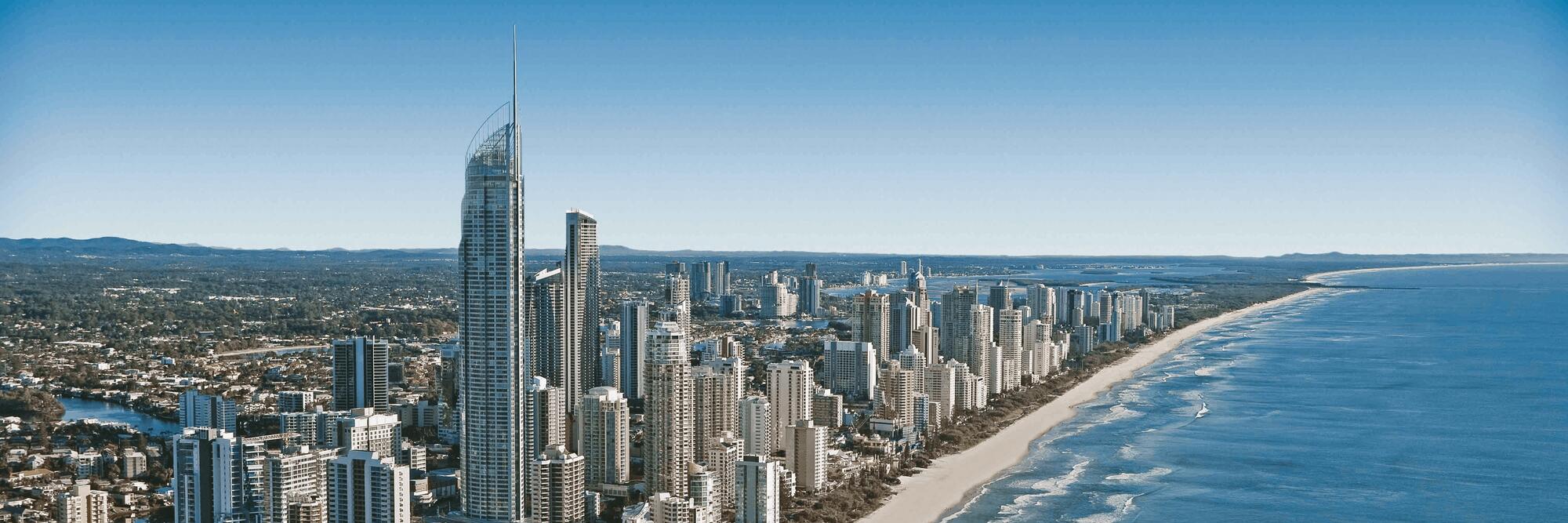 Following a chance encounter on a flight, Tara Foster ended up with a job offer and started her expat experience in Australia. Eight years later Tara, originally from New Jersey in the USA finds herself continuing to enjoy all the opportunities that Sydney has to offer.
Following a chance encounter on a flight, Tara Foster ended up with a job offer and started her expat experience in Australia. Eight years later Tara, originally from New Jersey in the USA finds herself continuing to enjoy all the opportunities that Sydney has to offer.About Tara
Q: Where are you originally from?
A: Marlton, NJ USA
Q: Where are you living now?
A: Sydney, Australia
Q: When did you move to Australia?
A: August 2005
Q: Did you move to Sydney alone or with a spouse/family?
A: I moved alone.
Q: Why did you move to Australia; what do you do?
A: I was on a flight from Los Angeles to Sydney - visiting old Australian friends I had met in London while in uni. The person sitting next to me worked in the same field and basically quizzed me for fourteen and a half hours! I came out of there with a job offer and a life-long adventure to Australia!
Living abroad
Q: What do you enjoy most about Sydney? How would you rate the quality of life compared to your home country?
A: I like the beaches and the outdoorsy activities you can do. It’s not uncommon to go scuba diving or hang out at the beach after work. Life in Sydney is different - while it is more expensive, there’s healthier food options. It can be less convenient as banks are not available in some locations and almost everything is closed on a Sunday. However, the quality of life in Sydney is really great.
Q: Any negatives? What do you miss most about home?
A: I miss being eight hours from Europe. It’s a whole 20 hours to get to Europe or the east coast of America. I miss the food - the taste of things.
Q: What are the biggest adjustments you had to make when settling into expat life in Australia? Did you experience any particular elements of culture shock?
A: The Australian's unique use of the English language is probably the biggest thing a foreigner needs to get used to when moving to Australia. When speaking about gardening supplies in Australia, pot plants are just that: plants in pots.
Q: What’s the cost of living in Sydney compared to home? What is cheap or expensive in particular?
A: Australia currently practices a ‘living wage’ - so a lot more of the pie is spread out amongst the people. However, it is incredibly expensive to live here, especially in Sydney - so, what you pay for rent in Australia, is incredibly minimal to what you would get in America.
Q: How would you rate the public transport in Sydney? What are the different options? Do you need to own a car?
A: Public transport in Sydney never runs on time. Trains in Australia break down when the weather gets too hot. Driving is pretty easy, but always travel with lots of water because if you breakdown in an obscure place the chances of dying are quite high as it could be a while before another vehicle comes alone. In major cities like Sydney you probably don't need a car but out in the middle of nowhere, you have no choice but to get your own car to help you get around.
Q: How would you rate the healthcare in Sydney? Have you had any particularly good/bad experiences with regards to doctors and hospitals? Are there any hospitals you would recommend?
A: I am a firm believer in healthcare for all. Australia has got it (well, if you’re from a Commonweath country). I’ve never had a bad experience in a Sydney Hospital.
Q: What are the biggest safety issues facing expats living in Sydney? Are there any areas expats should avoid?
A: Australia is a pretty friendly place. You do get the occasional backpacker murder - most of which happened in the 1990’s. I’ve never had a problem, but iIve been pretty cautious. Outback towns can be pretty tough environments - so be weary. If you feel a slight tinge of unease, get out of there.
Q: How do you rate the standard of housing in Sydney What different options are available for expats?
A: Accommodation in Sydney is offered by real-estate agents. It’s priced according to weeks not months. It is not a renters' market – so the cost of accommodation can get quite high for expats. Options in the big cities are mostly apartment buildings, but there are a few houses too.
Q: Any areas/suburbs of Sydney you’d recommend for expats to live in?
A: My favourite is Glebe – it’s close to everything like the universities and the city centre. It is safe and there is not too much violence. Bondi is also fantastic if you like the beach. It’s a great culture for newbies to Australia!
Meeting people and making friends in Sydney
Q: How tolerant are the locals of foreigners? Is there any obvious discrimination against particular religions or women etc.?
A: Most of Australia is full of foreigners - you’ll be fine.
Q: Was it easy meeting people and making friends in Sydney? How did you go about meeting new people?
A: I met a lot of people though work - but I also joined a surf club and I made some incredible friends through that.
Q: Have you made friends with locals or do you mix mainly with other expats? What advice would you give to new expats looking to make friends? Any social/expat groups you can recommend?
A: I stick with the locals. Expats are mostly on their own journey so they have their own path they’re following. As for groups, the Surf Club is fantastic to meet fun and fit people!
About working in Sydney
Q: Did you have a problem getting a visa or work permit for Australia? Did you tackle the visa process yourself or did you enlist the services of an immigration consultant?
A: I had my paperwork sorted six weeks prior to landing in Australia - though the visa wasn’t granted until three days after I landed. Therefore I was kind of illegal, but nothing happened. If you are going for permanent residency, you’re in for a long wait. It’s a terribly stressful and complicated process.
Q: What’s the economic climate like in Sydney? Do you have any tips for expats looking to find a job there? Which resources did you find most useful?
A: Australia has been very lucky. It avoided the economic collapse -so the economy is thriving. Best advice to getting a job in Australia - you need to be in it to win it.
Q: How does the work culture differ from home? Do you have any tips for expats doing business in Australia?
A: Australians are some of the hardest working people I’ve ever met - but they also have a very large drinking culture, so expect Friday afternoon drinks to be the norm. Bullying is also very prevalent amongst Aussie workplaces. I’ve worked at many different places, and have had a lot of male co-workers quite resentful of successful women.
And finally…
A: If you do decide to move to Australia and you happen to be on a 457 visa, please know that companies will try to pay you the bare minimum wage they have to. You are basically an indentured servant until you are granted permanent residency by the Australian government.
It’s a terribly long and stressful process (if you quit or company decided to fire you - you have 28 days to get your affairs in order).
► Interviewed November 2013



